Introduction
In today’s digital world, kids are spending more time on screens and less time being active. With rising concerns about obesity, lack of discipline, and social disconnection, parents are constantly looking for ways to help their children develop into well-rounded individuals.
One of the best ways to accomplish this? Martial arts.
Martial arts is more than just learning how to punch and kick. It’s a powerful tool for physical fitness, mental discipline, emotional resilience, and personal growth. Whether it's karate, taekwondo, judo, or Brazilian jiu-jitsu, martial arts instills values and skills that last a lifetime.
Let’s dive into nine compelling reasons why every child should experience martial arts training.
Boosts Physical Fitness
In today's digital era, children are spending more time indoors, glued to screens, and engaging in sedentary activities like watching TV, playing video games, or browsing on tablets. As a result, childhood obesity and related health issues, such as poor posture, weak muscles, and decreased stamina, are becoming increasingly common. Parents are constantly looking for ways to encourage their kids to be more active, and martial arts presents an excellent solution.
Unlike traditional sports, where kids might focus on one type of movement, martial arts engages the entire body, helping children develop strength, endurance, flexibility, and balance—all while having fun!
How Martial Arts Enhances Physical Health
✅ Increases Strength & Endurance
Martial arts training involves a mix of aerobic and anaerobic exercises, which help build strength and stamina. Kids engage in activities like:
Kicking and punching drills, which develop leg and upper body strength.
Holding stances (like horse stance in karate or deep lunges in taekwondo), which strengthens leg muscles and improves core stability.
Repetitive movements, such as striking combinations, which enhance muscle endurance and cardiovascular health.
For example, a child practicing taekwondo will continuously work on high kicks, requiring leg strength, flexibility, and stamina.
Over time, these drills improve heart health, lung capacity, and muscle tone, ensuring a fit and active body.
✅ Improves Coordination & Balance
Coordination is a crucial skill that affects everything from walking to playing sports. Martial arts requires precise, controlled movements, which help children develop better motor skills and body awareness. Through training, kids learn to:
Control their movements during spinning kicks and quick footwork.
Maintain balance while performing high kicks, jumps, and defensive maneuvers.
Synchronize hand-eye coordination when practicing blocking techniques and sparring drills.
For example, Brazilian Jiu-Jitsu (BJJ) involves grappling and ground movements, requiring kids to use their hands, legs, and body weight strategically. This type of training naturally improves their coordination and agility, which benefits them in everyday activities, from riding a bike to playing other sports.
✅ Develops Flexibility
Flexibility is essential for preventing injuries, increasing mobility, and improving overall athletic performance. Martial arts training includes:
Dynamic stretching before class – such as arm circles, lunges, and side stretches—to warm up muscles.
Static stretching after training – like seated forward bends and split stretches, which gradually improve flexibility over time.
High kicks and acrobatic moves – commonly practiced in karate, taekwondo, and kung fu, which require a flexible range of motion.
For instance, in taekwondo, students often perform high kicks like the axe kick and spinning hook kick, which naturally enhance hip and leg flexibility. Over time, this leads to greater mobility and reduced risk of muscle strain.
✅ Encourages Healthy Habits
Children who practice martial arts develop a positive attitude toward health and fitness from an early age. Unlike traditional workouts that might feel like a chore, martial arts keeps kids engaged and motivated through:
Belt progression systems, where they work toward earning their next belt rank, pushing them to stay consistent in their training.
Fun challenges, such as breaking boards, sparring, and learning new forms, making exercise enjoyable.
A sense of community, where they train with peers, reinforcing positive behavior and discipline.
Many kids who start martial arts develop a lifelong appreciation for staying active. They are also more likely to:
✔ Choose outdoor activities over screen time.
✔ Be mindful of their diet to support their performance.
✔ Understand the importance of rest and recovery.
For example, a child practicing judo or BJJ quickly learns that a healthy diet, proper hydration, and consistent training improve their endurance on the mat. These lessons instill healthy habits that extend far beyond the dojo.
Teaches Self-Discipline

In a world full of distractions, teaching kids self-discipline can be challenging. Many children struggle with impulse control, consistency, and delayed gratification, often expecting immediate results in everything they do. Martial arts naturally fosters self-discipline by encouraging kids to set goals, follow routines, and stay committed to their training.
How Martial Arts Fosters Discipline:
✅ Encourages Goal Setting & Achievement
Martial arts follows a structured progression system where students advance through belt ranks. Unlike activities where participation alone earns a reward, martial arts requires:
Regular attendance – Kids quickly learn that progress comes only with consistent effort.
Mastery of techniques – Moving to the next belt requires demonstrating skill proficiency.
Patience & dedication – Kids learn that success takes time and effort rather than happening overnight.
For example, in karate, earning a black belt often takes years of practice, reinforcing the idea that hard work leads to meaningful rewards.
✅ Reduces Impulsive Behavior
Martial arts teaches kids to control their reactions and think before acting, which is beneficial for children who struggle with:
Interrupting conversations or instructions – Classes require focus and active listening.
Acting without thinking – Kids are taught to analyze situations before responding,
improving emotional control.Restlessness or hyperactivity – Structured training sessions help channel excess energy into constructive movement.
For instance, in Brazilian Jiu-Jitsu (BJJ), students must remain calm and strategic rather than relying on brute force, teaching
patience under pressure.
✅ Develops a Strong Work Ethic
Unlike video games or instant entertainment, martial arts requires kids to put in the effort to see results. They learn:
Failure is part of growth – A student who struggles with a technique keeps practicing until they succeed.
Self-motivation – Instructors encourage kids to train independently and push their limits.
Commitment leads to progress – Kids realize that skipping classes or slacking off slows their improvement.
Over time, these habits translate into better school performance, improved responsibility, and a strong sense of accountability.
Builds Confidence and Self-Esteem
Confidence is one of the greatest gifts a child can receive from martial arts. Many kids struggle with self-doubt, fear of failure, or low self-esteem, often hesitating to try new things or stand up for themselves. Through martial arts, children gain a sense of accomplishment and self-assurance that extends into all areas of their lives.
How Martial Arts Boosts Confidence:
✅ Overcoming Challenges & Achieving Goals
Every class presents new challenges, whether it’s:
Learning a new technique that seemed impossible at first.
Passing a belt test after weeks of practice.
Winning a sparring match against a tough opponent.
Each achievement reinforces the belief that hard work and perseverance pay off, giving kids a sense of personal empowerment.
✅ Empowerment Through Self-Defense
Knowing how to defend themselves gives children a sense of security, helping them feel more in control of their surroundings.
Bullies target those who seem unsure of themselves – Martial arts training helps kids carry themselves with confidence.
Handling confrontation calmly – They learn that real strength comes from avoiding unnecessary fights rather than engaging in them.
For instance, a child trained in Judo knows how to fall safely, break grips, and escape holds , giving them the confidence to stay calm in tense situations.
✅ Positive Reinforcement & Encouragement
Martial arts creates an uplifting environment where instructors and peers provide continuous support.
Encouraging words from coaches and teammates boost self-esteem.
Constructive feedback helps kids learn from mistakes without feeling discouraged.
Celebrating small wins (like mastering a difficult kick) builds a child’s self-belief.
As confidence grows, kids become more willing to take risks, try new experiences, and embrace challenges in school, sports, and life.
Enhances Social Skills
While martial arts is often seen as an individual discipline, it actually fosters strong social interactions. Kids train together, spar together, and learn from one another, forming meaningful connections in the process.
How Martial Arts Improves Socialization:
✅ Encourages Teamwork & Cooperation
Even though martial arts is not a team sport, kids still rely on
training partners to:
Practice techniques together – Learning to spar safely requires trust and cooperation.
Encourage each other – Older students often mentor beginners, fostering leadership skills.
Develop communication skills – Verbal and non-verbal cues are essential in partner drills.
✅ Teaches Respect & Etiquette
Martial arts is deeply rooted in respect for instructors, fellow students, and the discipline itself.
Kids learn to bow before training, reinforcing respect and humility.
Addressing instructors formally teaches politeness and manners.
Understanding the value of patience and listening strengthens friendships.
✅ Helps Shy Kids Open Up
For introverted children, martial arts provides a structured and supportive space where they:
Gain confidence by interacting in a safe, controlled setting.
Learn social skills without the pressure of competitive team sports.
Develop friendships based on mutual growth and shared challenges.
As a result, many kids who start martial arts shy and reserved grow into outgoing, self-assured individuals.
Teaches Respect and Courtesy
Respect is one of the most fundamental principles of martial arts. From the moment a child steps onto the mat, they are taught to honor their instructors, training partners, and the art itself.
How Martial Arts Instills Respect:
✅ Encourages Active Listening & Following Instructions
In every class, kids must pay attention to their instructor’s guidance. They learn to:
Follow complex instructions carefully – Ignoring details can lead to mistakes in execution.
Wait their turn to speak – Respecting authority figures and peers becomes second nature.
✅ Reinforces Good Manners & Humility
Respect in martial arts is not just about listening—it’s about how students treat others.
Bowing before a match teaches humility and sportsmanship.
Acknowledging a sparring partner’s efforts encourages kindness and gratitude.
Accepting defeat gracefully reinforces character development.
✅ Promotes Respect Beyond the Dojo
Children who develop respect in martial arts often extend it to:
Parents and teachers – They are more likely to follow household and classroom rules.
Peers and siblings – They learn to manage conflicts with patience.
Themselves – Martial arts builds self-respect by teaching kids to value their own growth.
In short, martial arts turns kids into respectful, well-mannered individuals, shaping them into positive members of society.
Improves Focus and Concentration
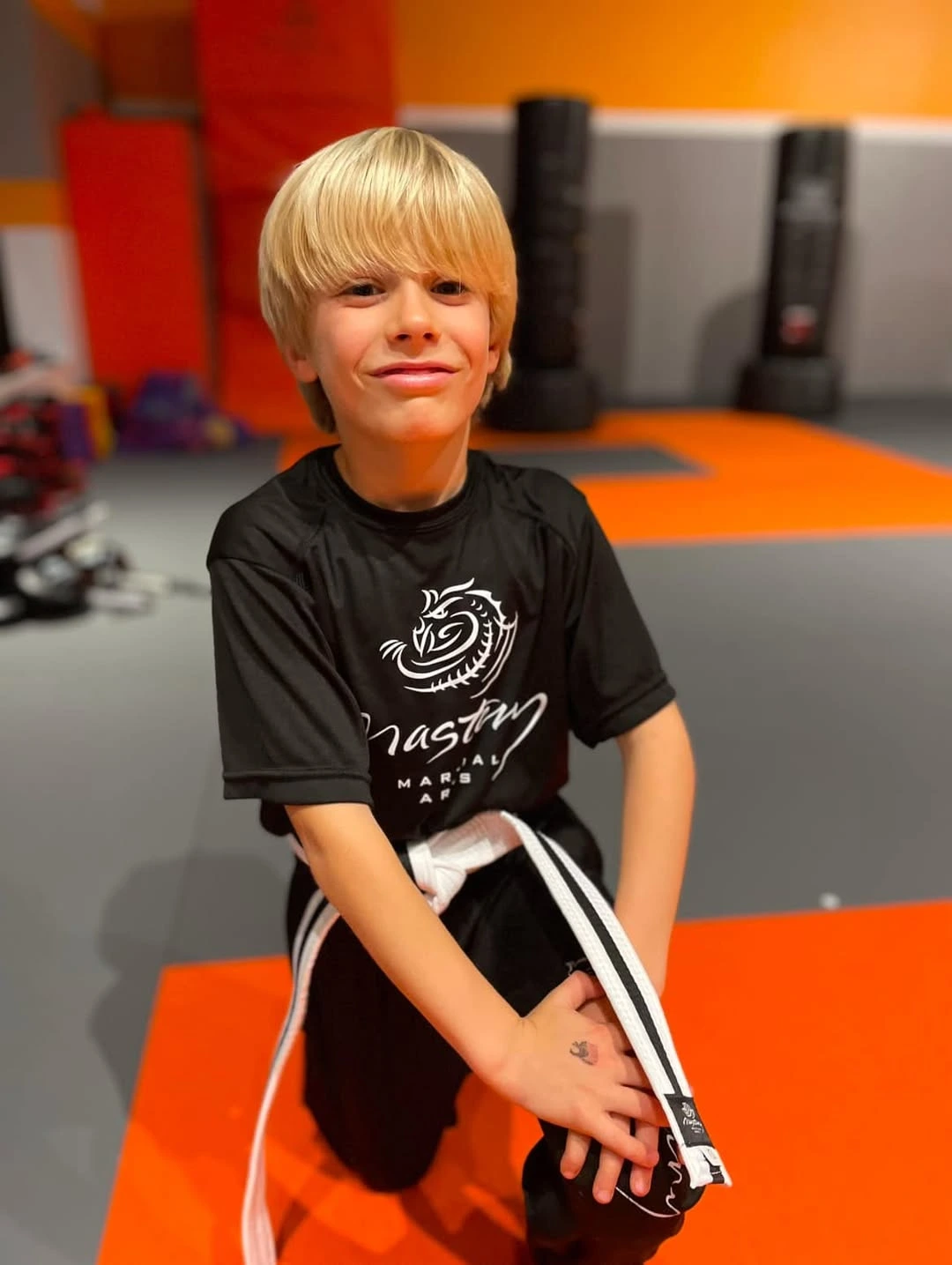
In today’s fast-paced digital world, children are constantly bombarded with distractions. Whether it’s social media, video games, or television, maintaining focus has become increasingly difficult. Martial arts offers a structured environment where kids learn to sharpen their concentration, increase their attention span, and develop mental discipline—all of which can positively impact their academic performance and daily life.
How Martial Arts Enhances Focus and Concentration:
✅Teaches Mindfulness & Present-Moment Awareness
Martial arts requires kids to be fully engaged in the moment.
During training, they must:
Pay close attention to their instructor’s demonstrations and corrections.
Stay mentally present when practicing kicks, punches, and defensive maneuvers.
Focus on precision and control, rather than rushing through movements.
For example, in karate, executing a perfect kata (a sequence of movements) requires deep focus, mental clarity, and complete concentration on form and technique.
✅ Improves Attention Span
Unlike passive activities like watching TV, martial arts is physically and mentally demanding. Kids quickly learn that drifting off during a lesson means they’ll miss important instructions or make mistakes in execution.
Through consistent practice, they develop the ability to:
Maintain focus for longer periods, helping them concentrate better in school.
Block out distractions, leading to improved listening and comprehension skills.
Stay engaged in tasks without becoming restless or impatient.
✅ Promotes Better Academic Performance
Because martial arts requires a high level of discipline, memorization, and structured thinking, it naturally strengthens skills that benefit school performance. Many parents report that their child’s ability to:
Completing homework with fewer distractions improves.
Following classroom instructions more effectively increases.
Process and retain information faster.
A study by the American Psychological Association found that kids who engage in structured physical activities like martial arts
demonstrate better cognitive function and academic success.
✅ Develops Patience & Mental Toughness
Learning new techniques, improving form, and progressing through belt levels take time. Martial arts teaches kids that patience, perseverance, and consistent effort lead to success.
They accept setbacks as part of growth, rather than becoming discouraged. They develop a problem-solving mindset, analyzing mistakes and making improvements. They cultivate resilience, learning to push through challenges rather than giving up.
Ultimately, martial arts provides kids with lifelong focus and concentration skills that benefit them in school, sports, and personal endeavors.
Encourages Conflict Resolution and Non-Violence
Contrary to the misconception that martial arts promotes aggression, it actually teaches kids to avoid unnecessary conflict and resolve disputes peacefully. While learning self-defense skills, children develop emotional control, patience, and the ability to assess situations calmly.
How Martial Arts Promotes Peaceful Conflict Resolution:
✅ Teaches Self-Control & Emotional Regulation
Many children struggle with impulsive reactions when faced with challenges or disagreements. Martial arts helps them:
Manage their emotions effectively, preventing outbursts of frustration or anger.
Think before they act, making rational decisions rather than reacting impulsively.
Use discipline and strategy instead of force when handling conflicts.
For instance, in Brazilian Jiu-Jitsu (BJJ), students are taught to remain calm under pressure while sparring, mirroring real-life situations where emotional control is essential.
✅ Instills Responsibility in Using Self-Defense Skills
Martial arts teaches kids that violence is a last resort. They learn that their training is not meant to:
Intimidate or bully others, but rather to protect themselves when absolutely necessary.
Prove dominance, but instead to build self-confidence and resilience.
Seek fights, but rather to avoid physical altercations whenever possible.
Instructors emphasize that the true strength of a martial artist lies in knowing when NOT to fight.
✅ Encourages Verbal De-Escalation & Assertiveness
Many martial arts programs incorporate conflict-resolution training, teaching children how to:
Use assertive communication to stand up for themselves without resorting to aggression.
De-escalate tense situations using calm body language and strong posture.
Walk away from unnecessary confrontations with confidence, not fear.
For instance, a child trained in taekwondo may confidently defuse a bullying situation by using eye contact, a firm voice, and controlled body language, discouraging the aggressor without needing physical action.
✅ Builds Respect & Understanding
By training with different partners of all backgrounds and skill levels, kids develop:
Empathy, as they learn to understand their opponent’s perspective.
Mutual respect, recognizing the hard work and dedication of others.
A sense of sportsmanship, gracefully handling both victory and defeat.
Through martial arts, children become more confident and capable of handling conflicts maturely and peacefully.
Provides a Fun and Engaging Activity
Kids are more likely to stick with an activity if it’s fun, engaging, and rewarding—and martial arts delivers on all fronts!
Why Martial Arts is a Great Activity for Kids:
✅ Prevents Boredom & Screen Addiction
Instead of spending hours on video games, martial arts offers an exciting real-world challenge that keeps kids moving and engaged.
Interactive training sessions ensure variety and excitement.
Learning new techniques keeps kids constantly improving.
Competing in friendly sparring matches adds a fun and competitive element.
✅ Encourages Lifelong Fitness & Healthy Habits
Many children who start martial arts develop a lifelong love for movement and fitness.
They are more likely to stay active throughout their lives.
They develop positive attitudes toward exercise and well-being.
Martial arts training improves overall body awareness, leading to better posture, flexibility, and strength.
✅ Creates a Supportive Community
Martial arts classes foster strong friendships and teamwork, making it a socially rewarding activity.
Kids train together, pushing each other to improve.
Instructors serve as positive role models, guiding them toward self-improvement.
The sense of belonging and camaraderie keeps kids excited to return to class.
When kids have fun while learning valuable life skills, they stick with martial arts for years—reaping benefits that last a lifetime!
Conclusion
Martial arts is far more than just a sport or self-defense system—it is a comprehensive life-changing experience that benefits children in ways that extend far beyond the dojo. From developing physical fitness and discipline to enhancing confidence and emotional resilience, martial arts equips kids with the essential skills they need to succeed in all aspects of life.
One of the most pressing concerns for parents today is ensuring their children stay active, engaged, and mentally strong in an age dominated by screens and distractions. Martial arts provides the perfect solution by offering a structured, disciplined, and enjoyable environment where kids can grow physically, mentally, and emotionally. Unlike traditional sports, martial arts promotes
full-body fitness, coordination, and flexibility while simultaneously teaching children self-control, patience, and focus—all of which can significantly benefit their academic performance and personal growth.
Beyond the physical benefits, martial arts is an excellent tool for character development. Kids learn the importance of goal setting and perseverance as they progress through different belt levels, overcoming challenges that test their patience and determination.
They also develop strong social skills, learning to communicate, cooperate, and respect others—qualities that will help them build meaningful relationships throughout their lives.
Additionally, martial arts fosters self-confidence and a strong sense of self-worth. Whether it’s mastering a difficult technique, successfully defending themselves, or standing up to a bully, children gain a sense of empowerment that helps them tackle challenges with courage. At the same time, martial arts teaches the values of respect and humility, ensuring that kids remain grounded, disciplined, and kind to others.
Perhaps one of the most valuable lessons martial arts imparts is the ability to handle conflict with maturity and intelligence.
Instead of promoting violence, martial arts emphasize self-control, emotional regulation, and peaceful conflict resolution, helping children develop the skills to navigate difficult situations calmly and effectively.
Lastly, martial arts is simply a fun, exciting, and rewarding activity that keeps kids engaged for years. Whether it’s the thrill of sparring, the joy of earning a new belt, or the camaraderie of training with friends, martial arts provides children with a lifelong passion for movement and personal growth.
If you want your child to be stronger, more disciplined, and more confident, martial arts is one of the best gifts you can give them. It’s not just about learning how to fight—it’s about building character, developing resilience, and shaping a successful future.
So why wait?
Enroll your child in martial arts today and watch them transform into a strong, confident, and well-rounded individual
Who is ready to take on the world!
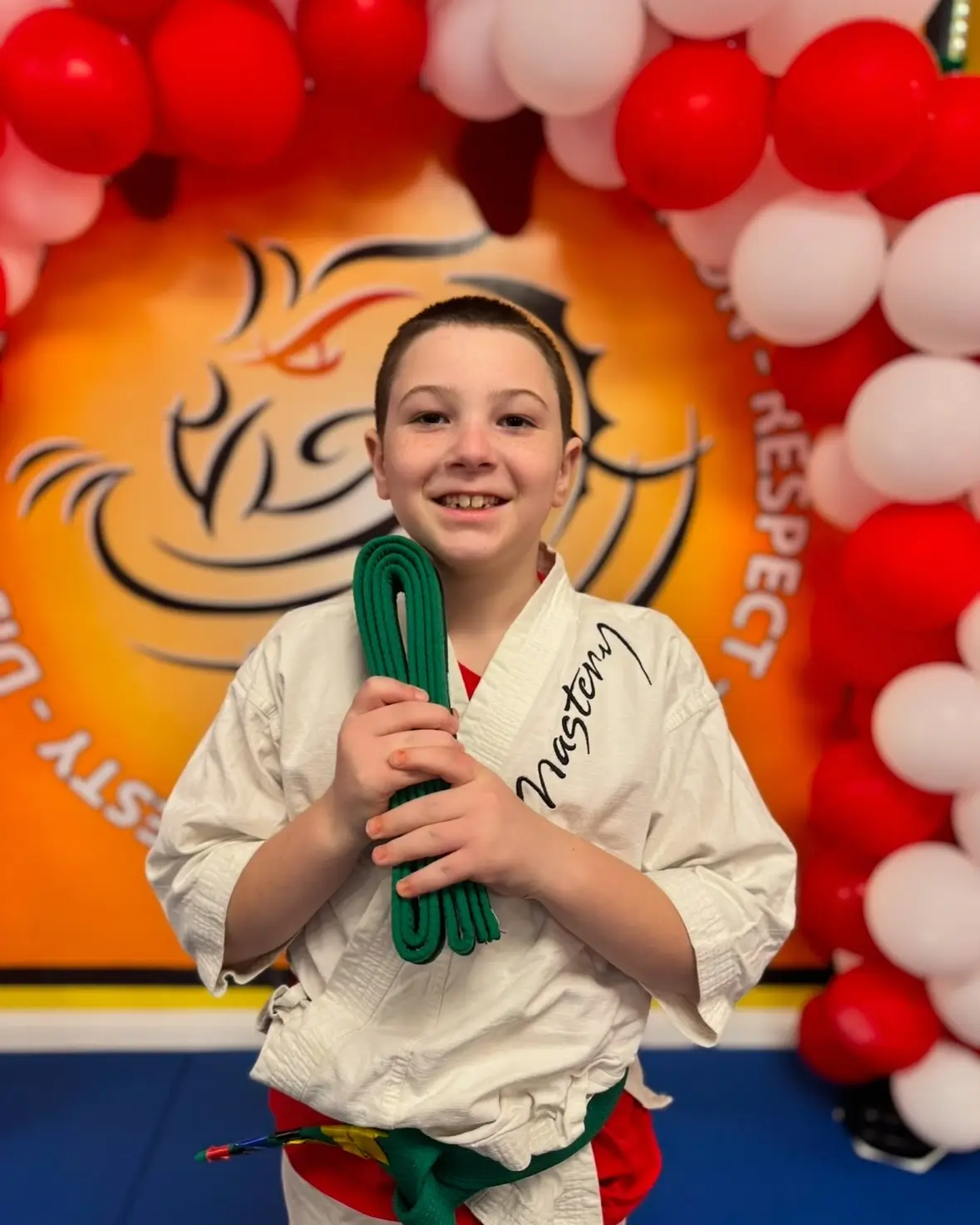
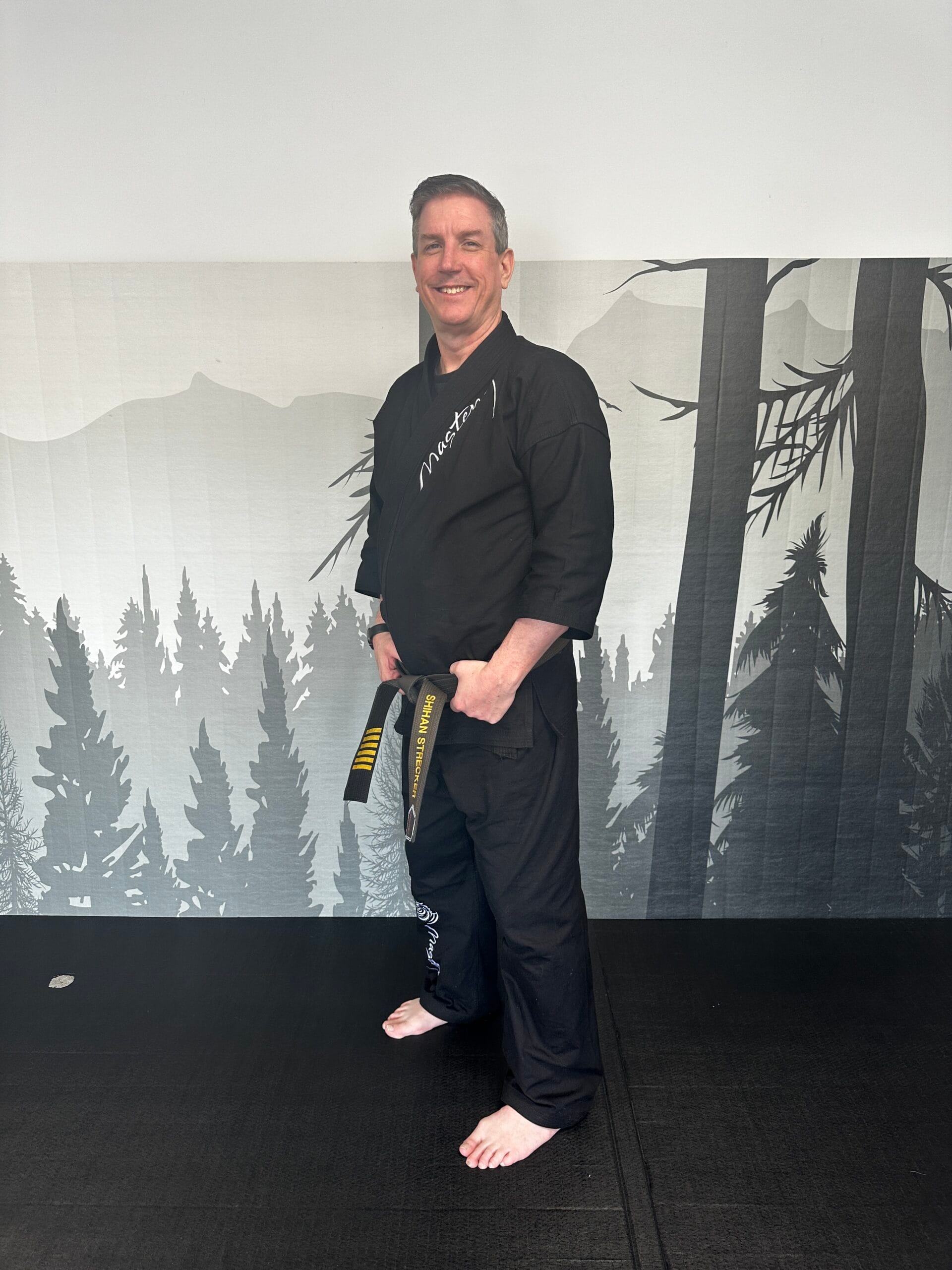
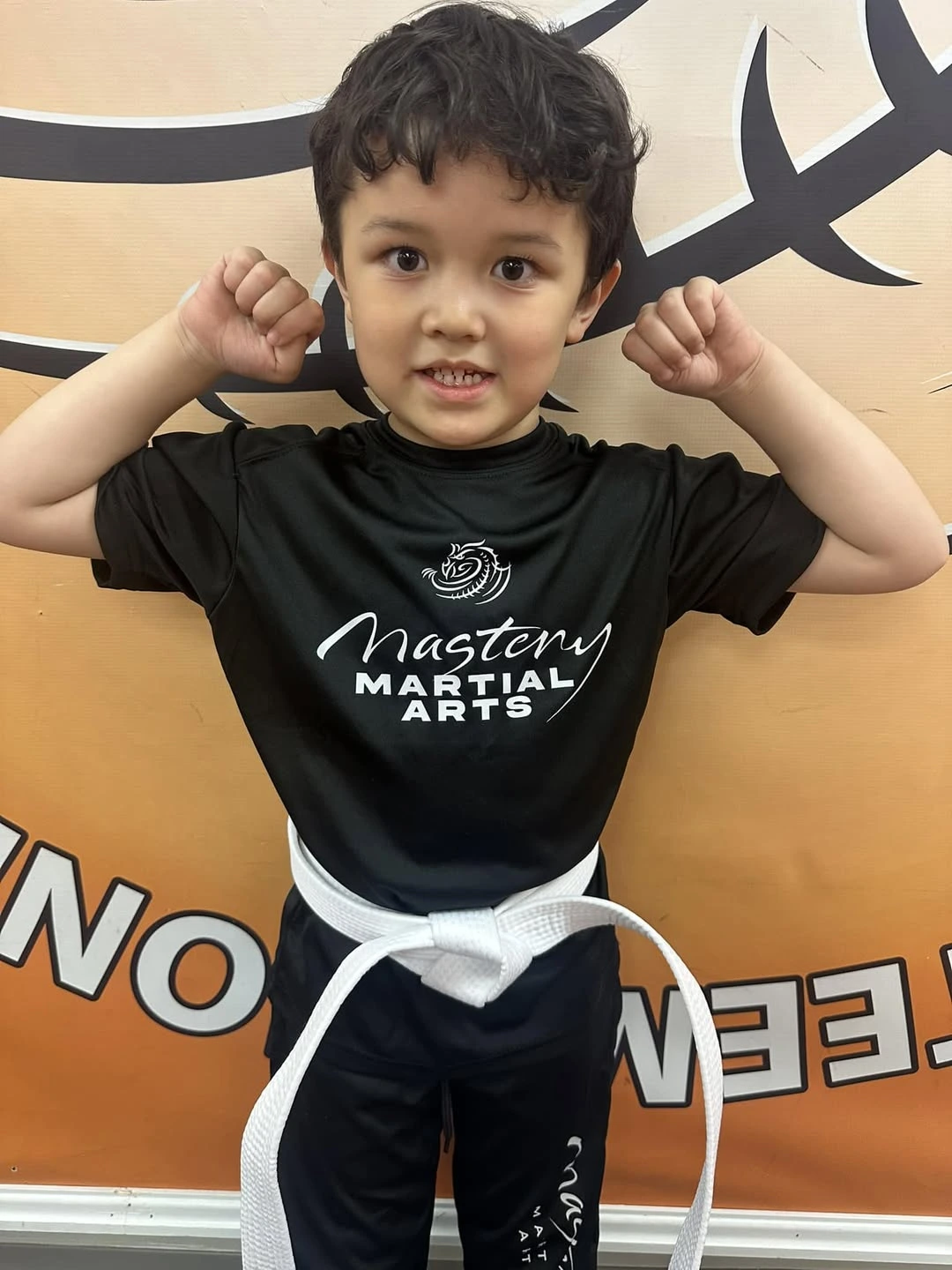
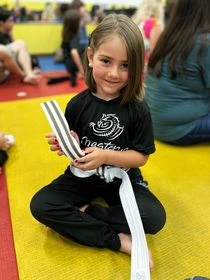
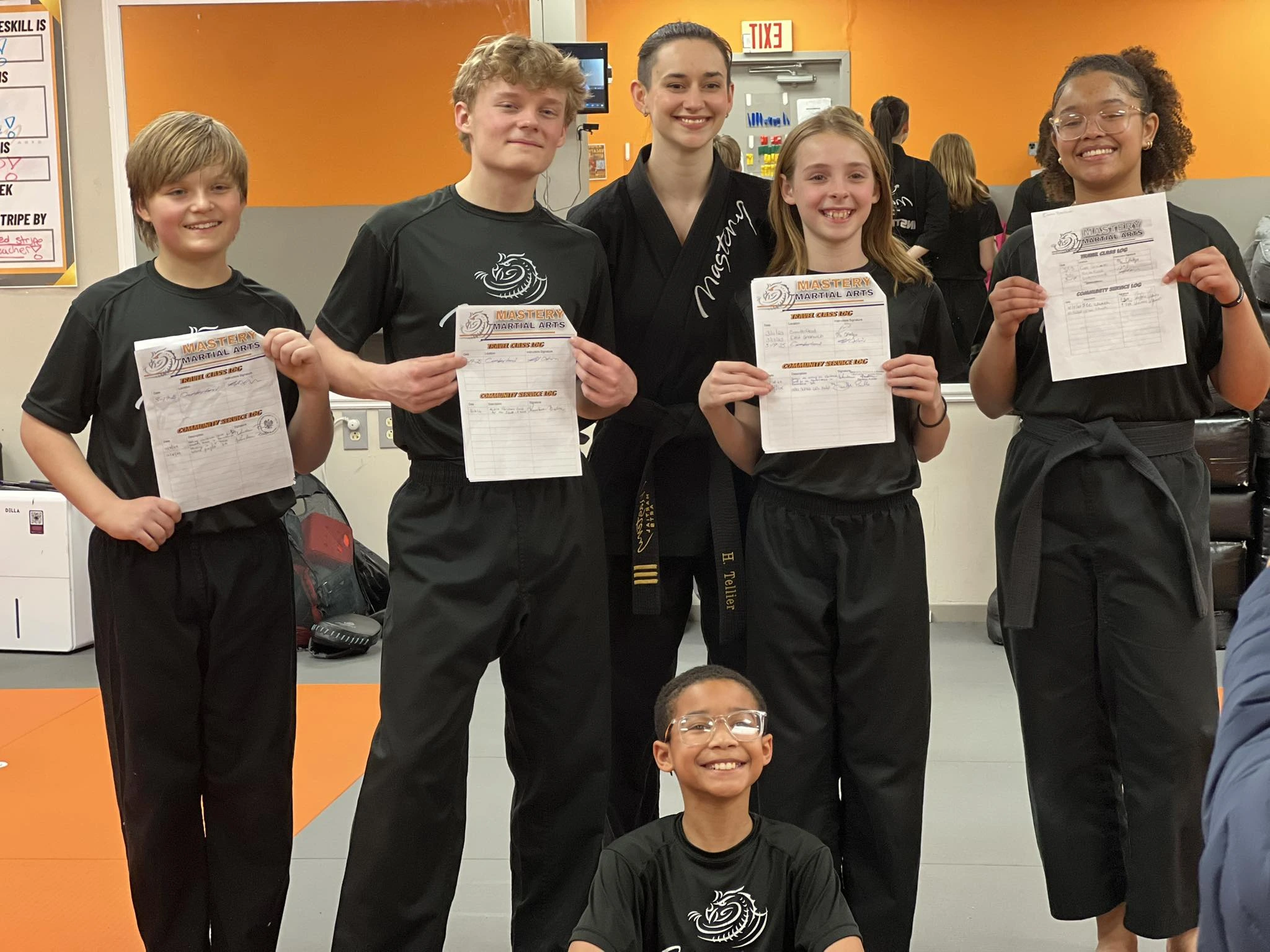
0 Comments